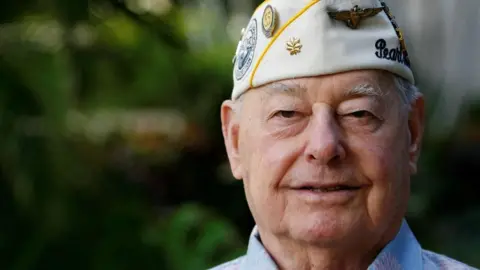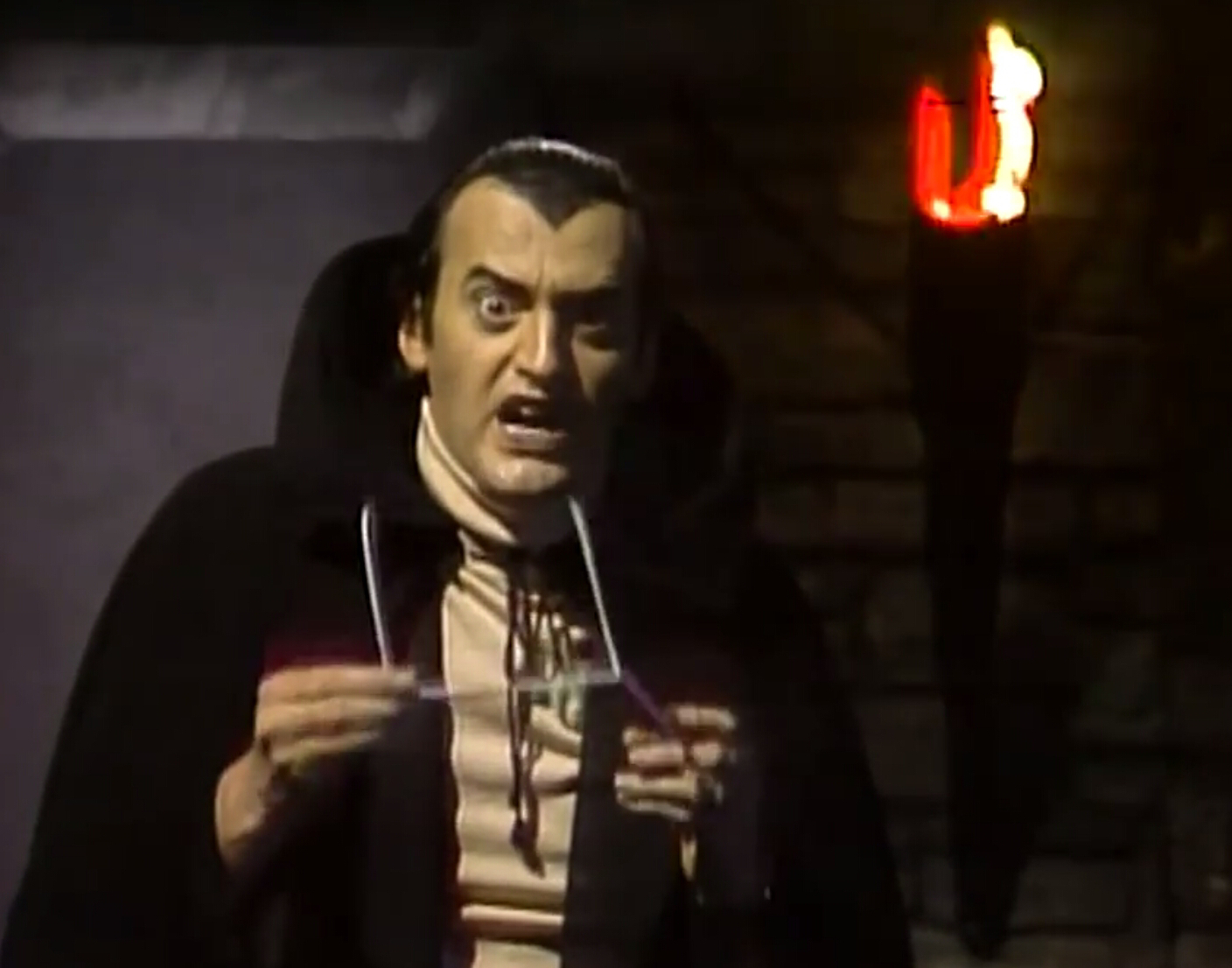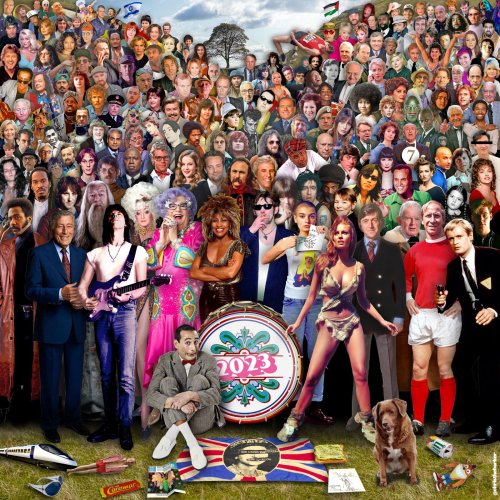Trump - rgio - May 2, 2024 - 11:07am
Israel - R_P - May 2, 2024 - 10:20am
Song of the Day - oldviolin - May 2, 2024 - 9:27am
NY Times Strands - maryte - May 2, 2024 - 9:18am
Dialing 1-800-Manbird - oldviolin - May 2, 2024 - 9:17am
Questions. - oldviolin - May 2, 2024 - 9:13am
Breaking News - Red_Dragon - May 2, 2024 - 9:07am
What can you hear right now? - ScottFromWyoming - May 2, 2024 - 8:39am
What Makes You Laugh? - Red_Dragon - May 2, 2024 - 8:38am
What Makes You Sad? - pilgrim - May 2, 2024 - 8:31am
Radio Paradise Comments - pilgrim - May 2, 2024 - 8:27am
NYTimes Connections - maryte - May 2, 2024 - 8:09am
Wordle - daily game - geoff_morphini - May 2, 2024 - 8:05am
The Obituary Page - Proclivities - May 2, 2024 - 7:42am
Main Mix Playlist - roadie - May 2, 2024 - 6:31am
May 2024 Photo Theme - Peaceful - Proclivities - May 2, 2024 - 4:55am
Today in History - DaveInSaoMiguel - May 2, 2024 - 4:00am
Russia - Lazy8 - May 1, 2024 - 9:23pm
And the good news is.... - Bill_J - May 1, 2024 - 6:30pm
Bug Reports & Feature Requests - ladron - May 1, 2024 - 6:22pm
Unquiet Minds - Mental Health Forum - haresfur - May 1, 2024 - 5:49pm
Things you would be grating food for - Manbird - May 1, 2024 - 3:58pm
Economix - black321 - May 1, 2024 - 12:19pm
Name My Band - DaveInSaoMiguel - May 1, 2024 - 9:56am
Joe Biden - VV - May 1, 2024 - 9:24am
RightWingNutZ - rgio - May 1, 2024 - 7:57am
USA! USA! USA! - haresfur - Apr 30, 2024 - 8:46pm
I Heart Huckabee - NOT! - Manbird - Apr 30, 2024 - 7:49pm
Derplahoma! - Red_Dragon - Apr 30, 2024 - 6:34pm
Democratic Party - R_P - Apr 30, 2024 - 4:01pm
Oh, The Stupidity - haresfur - Apr 30, 2024 - 3:30pm
Talk Behind Their Backs Forum - VV - Apr 30, 2024 - 1:46pm
Canada - black321 - Apr 30, 2024 - 1:37pm
What Did You See Today? - Isabeau - Apr 30, 2024 - 1:15pm
Mixtape Culture Club - miamizsun - Apr 30, 2024 - 7:02am
Food - Bill_J - Apr 29, 2024 - 7:46pm
Photography Forum - Your Own Photos - Alchemist - Apr 29, 2024 - 1:11pm
New Music - ScottFromWyoming - Apr 29, 2024 - 11:36am
Upcoming concerts or shows you can't wait to see - ScottFromWyoming - Apr 29, 2024 - 8:34am
Tesla (motors, batteries, etc) - rgio - Apr 29, 2024 - 7:37am
Photos you haven't taken of yourself - Antigone - Apr 29, 2024 - 5:03am
The Dragons' Roost - GeneP59 - Apr 28, 2024 - 5:37pm
Britain - R_P - Apr 28, 2024 - 10:47am
Birthday wishes - GeneP59 - Apr 28, 2024 - 9:56am
If not RP, what are you listening to right now? - Beaker - Apr 28, 2024 - 9:47am
SCOTUS - Steely_D - Apr 28, 2024 - 1:44am
Would you drive this car for dating with ur girl? - KurtfromLaQuinta - Apr 27, 2024 - 9:53pm
Classical Music - miamizsun - Apr 27, 2024 - 1:23pm
LeftWingNutZ - Lazy8 - Apr 27, 2024 - 12:46pm
Things You Thought Today - Red_Dragon - Apr 27, 2024 - 12:17pm
The Moon - KurtfromLaQuinta - Apr 26, 2024 - 9:08pm
April 2024 Photo Theme - Happenstance - fractalv - Apr 26, 2024 - 8:59pm
Musky Mythology - Red_Dragon - Apr 26, 2024 - 7:23pm
Mini Meetups - Post Here! - Red_Dragon - Apr 26, 2024 - 4:02pm
Australia has Disappeared - Red_Dragon - Apr 26, 2024 - 2:41pm
Radio Paradise sounding better recently - firefly6 - Apr 26, 2024 - 10:39am
Neil Young - Steely_D - Apr 26, 2024 - 9:20am
Country Up The Bumpkin - KurtfromLaQuinta - Apr 26, 2024 - 9:01am
Environmental, Brilliance or Stupidity - miamizsun - Apr 26, 2024 - 5:07am
Poetry Forum - Manbird - Apr 25, 2024 - 12:30pm
Ask an Atheist - R_P - Apr 25, 2024 - 11:02am
Afghanistan - R_P - Apr 25, 2024 - 10:26am
Science in the News - Red_Dragon - Apr 25, 2024 - 10:00am
What the hell OV? - miamizsun - Apr 25, 2024 - 9:46am
The Abortion Wars - Isabeau - Apr 25, 2024 - 9:27am
Vinyl Only Spin List - ColdMiser - Apr 25, 2024 - 7:15am
What's that smell? - Manbird - Apr 24, 2024 - 10:27pm
260,000 Posts in one thread? - NoEnzLefttoSplit - Apr 24, 2024 - 10:55am
TV shows you watch - Beaker - Apr 24, 2024 - 7:32am
China - R_P - Apr 23, 2024 - 5:35pm
One Partying State - Wyoming News - sunybuny - Apr 23, 2024 - 6:53am
YouTube: Music-Videos - Red_Dragon - Apr 22, 2024 - 7:42pm
Ukraine - haresfur - Apr 22, 2024 - 6:19pm
songs that ROCK! - Steely_D - Apr 22, 2024 - 1:50pm
Republican Party - R_P - Apr 22, 2024 - 9:36am
Index »
Radio Paradise/General »
General Discussion »
The Obituary Page
Page: Previous 1 , 2 , 3 , 4 ... 121 , 122 , 123 Next
maryte
Posted:
Apr 11, 2024 - 8:38am
geoff_morphini wrote:
The story in the LA Times has asignificant typo in the next to last paragraph ( behind paywall). Iâm sure it will be corrected soon.
âLong before the city woke up on a fall morning in 2017, Trump walked out of Lovelock Correctional Center outside Reno, a free man for the first time in 9 years. He didnât go far, moving into 5,000-square-foot home in Vegas, with a Bentley in the driveway.
The media had been told heâd be released the following day, so he had the desert morning to himself as he was driven toward Las Vegas. It was a final trick play for a man whoâd spent a lifetime running away from trouble.â
geoff_morphini
Posted:
Apr 11, 2024 - 8:26am
rgio wrote:
The story in the LA Times has asignificant typo in the next to last paragraph ( behind paywall). Iâm sure it will be corrected soon.
âLong before the city woke up on a fall morning in 2017, Trump walked out of Lovelock Correctional Center outside Reno, a free man for the first time in 9 years. He didnât go far, moving into 5,000-square-foot home in Vegas, with a Bentley in the driveway.
The media had been told heâd be released the following day, so he had the desert morning to himself as he was driven toward Las Vegas. It was a final trick play for a man whoâd spent a lifetime running away from trouble.â
rgio
Posted:
Apr 11, 2024 - 7:53am
GeneP59
Posted:
Apr 10, 2024 - 8:13am
Red_Dragon wrote:
I guess he will now get to see the God particle in person.
Man I love intelligent people.
Red_Dragon
Posted:
Apr 9, 2024 - 4:09pm
maryte
Posted:
Apr 3, 2024 - 3:27pm
Antigone wrote:
John Barth . He wasn't what I would call a favorite author, but certainly entertaining.
Giles Goat-Boy. Well, alrighty then!
Antigone
Posted:
Apr 3, 2024 - 2:50pm
John Barth . He wasn't what I would call a favorite author, but certainly entertaining.
GeneP59
Posted:
Apr 3, 2024 - 6:15am
Isabeau wrote:
No, I mean that the Greatest Generation is almost gone now.
Isabeau
Posted:
Apr 2, 2024 - 12:52pm
GeneP59 wrote:
Thats so sad.
No! Lookit how long he LIVED afterward! May he rest in peace now.
GeneP59
Posted:
Apr 2, 2024 - 12:27pm
rgio wrote:
Louis Conter : Last survivor of attack on Pearl Harbor ship dies aged 102
Thats so sad.
maryte
Posted:
Apr 2, 2024 - 12:26pm
Steely_D wrote:
Too soon, I know. But RIP Joe Flaherty.
Count Floyd has left the crypt.
Steely_D
Posted:
Apr 2, 2024 - 10:06am
Too soon, I know. But RIP Joe Flaherty.
rgio
Posted:
Apr 2, 2024 - 9:31am
Louis Conter : Last survivor of attack on Pearl Harbor ship dies aged 102
The boring stories of childhood family barbeques have become history. Not Louis per se... just an appreciation that the "greatest generation is just about gone.
Beez
Posted:
Apr 2, 2024 - 7:10am
Casey Benjamin
So sad to hear. He was a true talent.
thisbody
oldviolin
Posted:
Mar 29, 2024 - 9:47am
GeneP59 wrote:
I didnât think he was that old.
A fine actor!
Indeed he was.
GeneP59
Posted:
Mar 29, 2024 - 9:47am
maryte wrote:
I didnât think he was that old.
A phenomenal actor!
GeneP59
Posted:
Mar 29, 2024 - 9:46am
maryte wrote:
I didnât think he was that old.
A fine actor!
Antigone
Posted:
Mar 29, 2024 - 8:21am
maryte wrote:
maryte
Posted:
Mar 29, 2024 - 7:21am







